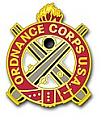... These Benguelas presently broke, and turned their backs, and a very great number of them were slain, and were taken captives, man, woman and child. The prince, Hombiangymbe, was slain, which was ruler of this country, and more than one hundred of his chief lords, and their heads presented and thrown at the feet of the great Gaga. The men, women and children that were brought in captive alive, and the dead corpses that were brought to be eaten, were strange to behold.
...
There were in the camp of the Gagas twelve captains. The first, called Imbe Calandola, their general, a man of great courage. He warreth all by enchantment, and taketh the Devil's counsel in all his exploits. He is always making of sacrifices- to the Devil, and doth know many times what shall happen unto him. He believeth that he shall never die but in the wars. There is no image among them, but he useth certain ceremonies. He hath straight laws to his soldiers : for, those that are faint-hearted, and turn their backs to the enemy, are presently condemned and killed for cowards, and their bodies eaten.
...
When they settle themselves in any country, they cut down as many palms as will serve them wine for a month and then as many more, so that in a little time they spoil the country. They stay no longer in a place than it will afford them maintenance. And then in harvest-time they arise, and settle themselves in the fruitfullest place they can find; and do reap their enemy's corn, and take their cattle. For they will not sow, nor plant, nor bring up any cattle, more than they take by wars.
...
The women are very fruitful, but they enjoy none of their children: for as soon as the woman is delivered of her child, it is presently buried quick [alive], so that there is not one child brought up in all this generation. But when they take any town they keep the boys and girls of thirteen or fourteen years of age as their own children. But the men and women they kill and eat. These little boys they train up in the wars, and hang a collar about their necks for a disgrace, which is never taken off till he proveth himself a man, and bring his enemy's head to the General : and then it is taken off and he is a freeman, and is called Gonso or soldier. This maketh them all desperate, and forward to be free, and counted men : and so they do increase. ...















Bookmarks